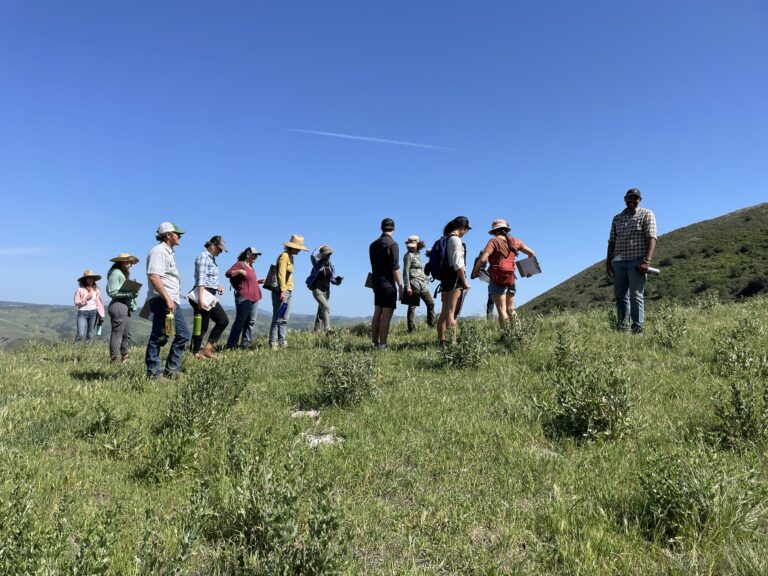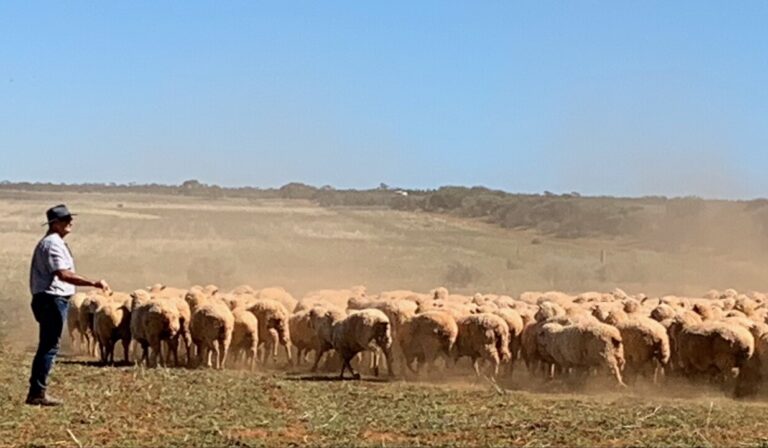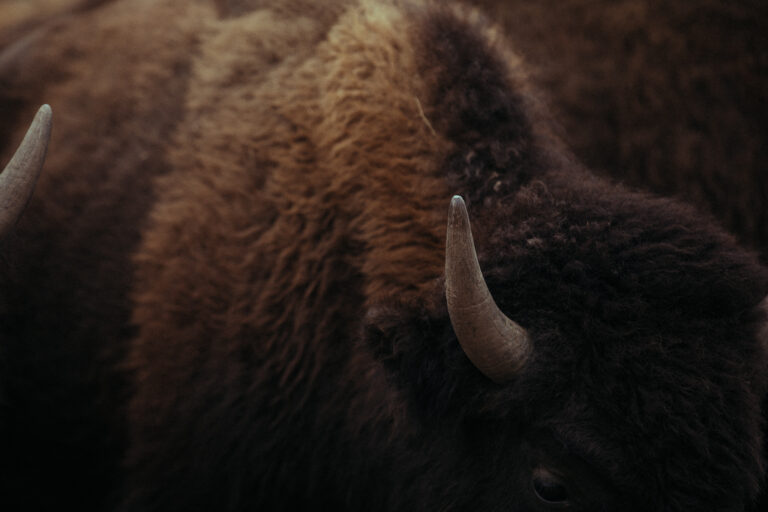For the first time, Allan Savory, accompanied by his wife and Savory Institute Chief Curator Jody Butterfield, plus Savory Institute CEO Daniela Ibarra-Howell, toured the Iberian Peninsula and its incredibly beautiful pastoral landscapes in June. Long a dream of hub member Gustavo Ales, the tour, organized with the help of the Iberian Savory Hub, AleJAB, brought Savory together with groups of producers, academia, and government who shared their experiences and insights.
The main goal of the tour was to increase awareness in the region of Holistic Management and the potential of its decision-making framework and its associated Holistic Planned Grazing procedure to heal these brittle territories.
The focus of the tour was the “dehesa” (“montado” in Portugal), located in the southwestern part of the Iberian Peninsula, which covers an area of about 3.5 – 4 million hectares (8.6 to 10 million acres). The dehesa is a traditional Mediterranean agrosilvopastoral system, that may date as far back as 6,000 years and covers a landscape of great beauty: a variety of oak trees, which produce the acorns that fatten the gastronomically famous Iberian pig, olive plantations, wild herds, mushrooms and wildlife, and an enormous population of Northern and Central European birds that winter there each year.
However, the future of the dehesa is at risk, along with the pastoralist culture of this region and the livelihoods of many people, due to the degradation that has occurred as a result of current management and flawed policies.
Throughout the tour land degradation, driven by European Union (EU) policies and subsidies, addressing symptoms of desertification, rather than the underlying cause, were clearly damaging and not simply ineffective.
Vast areas of soil lay bare and exposed by plowing and ever decreasing numbers of animals remain on the land, as most have been confined to feedlots dependent on vast areas that produce the grass and crop residues transported to them.
AleJab is beginning to show how the damage can be reversed just by changing the management, and that’s what was on display during Savory’s tour.
With a combination of field days, master classes, hands-on workshops, public gatherings, interviews, and film production, both on private and public lands, AleJAB and Savory offered a variety of learning settings that attracted key stakeholders across disciplines and sectors who will be needed to tackle the great and worthwhile challenge of regenerating the social, economic and ecological integrity of the dehesa.
The holistic management of the dehesa’s incredibly valuable resources, and the holistic planned grazing of livestock to fully integrate them with orchards and other land uses are beginning to demonstrate that these landscapes and their communities can again thrive.
We had the privilege of visiting producers and groups in both Portugal and Spain that have been working with AleJAB over the past few years. They included the 500-hectare (1,235-acre) Finca Freixo do Meio in Montemor o Novo, Portugal. This farm is a brilliant example of what is possible with innovation, inclusion, commitment, and holistic design. An inclusive and rich cooperative of thirty (30) producers dedicated to the regenerative management of the dehesa now offer more than 200 products, including pork and lamb, eggs, fruits, vegetables, cereals, herbs, oils, wine, and more.
The passionate dedication and knowledge of the Dominguez Campa brothers, who opened their farm (one of the hub demonstration sites) near Badajoz, Spain, was another highlight of the tour. They shared their journey and learning around the regenerative production of grassfed merino sheep and Iberian pig, with ecological outcomes that leave no doubt of the potential of these landscapes.
Finca Cocosa, also in Bajadoz hosted an informative workshop and experimented with the formation of a Holistic Context to guide decision making on this public managed farm.
The long and fruitful tour ended with a final presentation by Allan Savory, back to back with a moving performance by flamenco “cantaor” and icon El Cabrero. These two defenders of grasslands and livestock moved the audience in novel ways and left us all with a sense of commitment to the land and each other that will hopefully result in much momentum for the regeneration of the Iberian dehesa.





